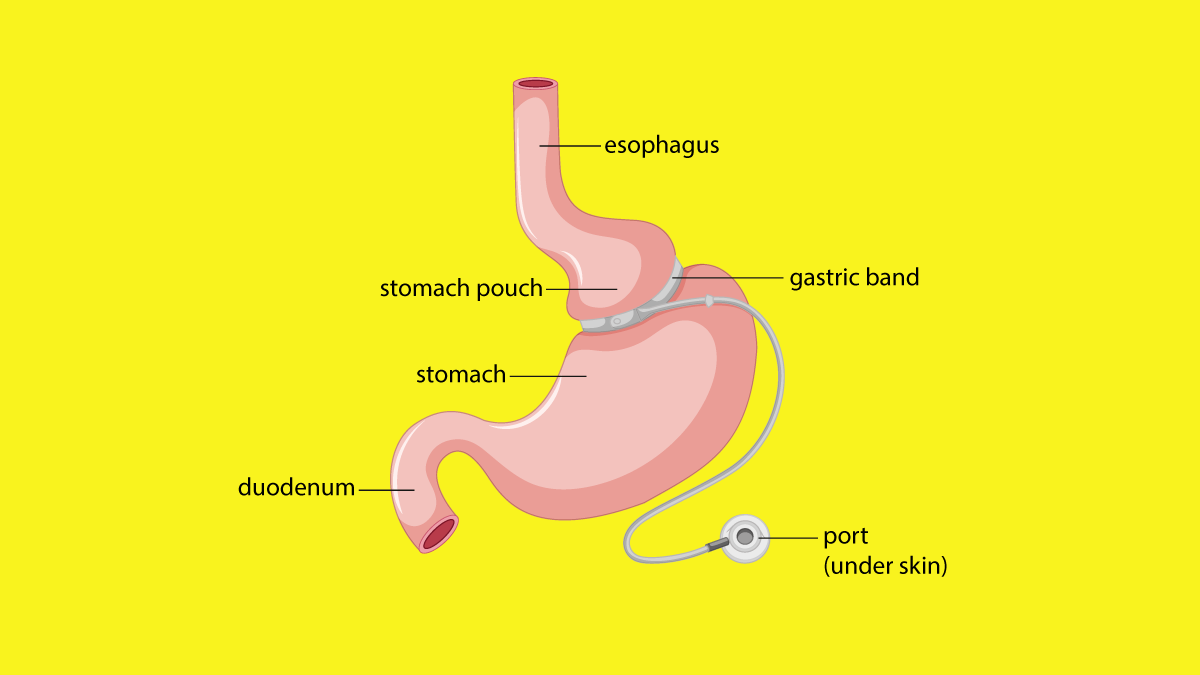
For individuals who have are overweight and are classified as obese according to their Body Mass Index (BMI), there are bariatric, or weight loss, procedures that can be life-changing. By disrupting some parts of the digestive tract, namely the small intestine and stomach, individuals can reduce excess weight, better manage their weight, and even improve diabetes and hypertension.
The main bariatric surgeries are gastric bypass, gastric sleeve, and the least invasive of all three, gastric banding. Though the previous two procedures can induce enormous weight loss for patients who undergo them, weight reduction with gastric banding is quite lower. Needless to say, there are different criteria for each surgery, and patients who qualify for gastric banding must have a BMI no higher than 45.
Of all bariatric surgeries in the US, less than 5% of them involve gastric banding. If you are not looking for extreme surgery with significant health risks, a lap band may work for you. This procedure is perfect for individuals who need some assistance controlling their appetite and overindulgence, without the same chance of side effects as more invasive surgeries. Plus, it is comforting for most patients to know this surgery is reversible.
How Does It Work?
First, you need to find a reputable medical center that has a good patient history and where specialists are qualified to take care of you. The surgeon from https://www.tijuanabariatriccenter.com/bariatric-surgery/lap-band/ says that contacting a center whose focus is bariatric surgery will likely give you peace of mind that your body and recovery will be in the best hands! But, how does it actually work?
Gastric or lap banding employs keyhole (laparoscopic) surgery to insert and attach a band around the top section of your stomach. Being able to fill this band with saline allows for expanding of the band and gives you an even more pronounced feeling of being full.
A general anesthetic is required to perform this surgery, as the abdomen muscles need to be completely relaxed. And after the procedure, there is a strict 6-week diet protocol that helps you slowly adjust to this new way of living and eating.
Is It Safe?
With any surgery there are complications, and gastric banding is no different. While there is the potential for a wound infection to occur, with sufficient hygiene, this should not be an issue. Gastric banding is typically a safe procedure because it is reversible and adjustable, as well as being approved by the Food and Drug Administration (FDA). Fortunately, less than 10% of patients experience a minor surgical complication.
Do You Need It?
If your BMI is above 30, among some other criteria, then you qualify for this procedure. For those who have a BMI of 45 or higher, banding is not recommended. Banding is more suited to individuals whose BMI is considered overweight or mildly obese. Because the lap band is non-invasive and not an aggressive weight loss treatment, it will not make a significant enough impact on an individual who classifies as heavily or extremely obese.
There are alternatives to weight loss that do not require surgery, and this procedure should be considered carefully, however safe it may be. You must know why you are taking the step to tackle your obesity in this way, as motivation to live healthier needs to continue long after the surgery is over to maintain the results.
How Will It Impact My Life Afterward?
To avoid complications or band failure, you will need to visit the hospital for a check-up in a year following your surgery. Your lap band will need to be monitored as the year progresses. Hereafter, they will recommend how often you should receive band follow-up appointments.
In addition to medical check-ups, it will become a priority to maintain the weight loss and health benefits of the gastric band. Patients wanting their procedure to be successful long-term will need to take care of their diet after the surgery and learn how to sufficiently address any nutrition concerns.
Get Help With Your Nutrition
The eating plan that you commit to, however, should not be so restrictive that you become totally resentful of your new way of living. Though people give up on their eating plan, this does have to happen to you.
A nutritionist specializing in bariatric care can help you develop a healthy food lifestyle, but one that does not make you feel like you are deprived or restricted. With commitment, motivation, and the right support to keep you on the right track, it is totally possible to sustain the weight loss!
The purpose of the surgery is to help you enjoy your life more, free you up to live life more fully, and take advantage of your body’s ability to recover and be resilient. Take the steps you need to reclaim your life!




